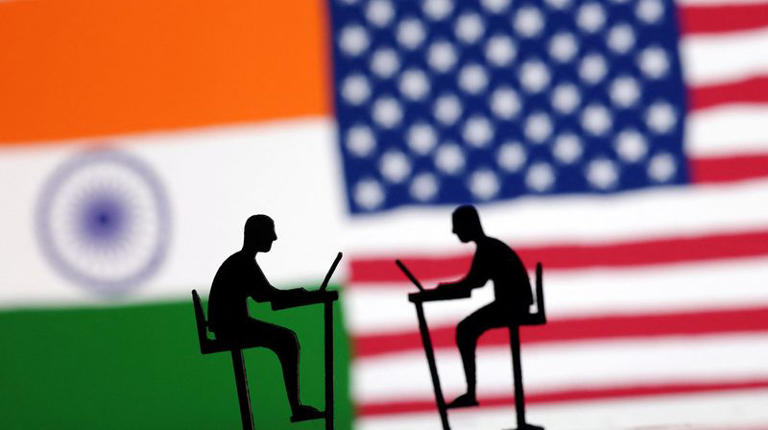India recently reversed a policy requiring licenses for imported laptops, tablets, PCs, and servers following lobbying efforts by U.S. officials. The rules, implemented in August, initially raised concerns about potential delays in sales for companies like Apple, Dell, and HP. However, India quickly backtracked on the policy, opting instead to monitor imports for a year before making further decisions.
U.S. government emails obtained through open records requests reveal the significant alarm triggered by India’s restrictions and the subsequent successful lobbying efforts to reverse the policy. Despite the typically cordial public relations between the two countries, the documents highlighted the abruptness of India’s policy change, which was deemed “incredibly problematic” for the business environment and $500 million worth of annual U.S. exports.
Counterpoint, a research firm, estimates India’s laptop and PC market to be valued at $8 billion annually, underscoring the importance of the issue. U.S. Trade Representative Katherine Tai personally urged Indian Commerce Minister Piyush Goyal to rescind the requirement during a meeting in New Delhi, emphasizing the negative impact on business confidence and investment in India.
In private communications, U.S. officials noted that Indian authorities acknowledged the misstep in implementing the policy without proper consultation. Travis Coberly, a U.S. diplomat for trade in New Delhi, indicated that Indian officials recognized their error and admitted to facing pressure from American companies regarding the issue.
However, neither Coberly nor the U.S. Embassy in New Delhi provided further comments on the matter, citing the confidential nature of diplomatic communications and redirecting inquiries to the Indian government.
In response to queries from Reuters, Brendan Lynch, acting Assistant U.S. Trade Representative for South and Central Asia, stated that the USTR was monitoring India’s scrutiny of imported devices to ensure compliance with WTO obligations and to assess its impact on the trade relationship. While acknowledging that the current monitoring system had minimal trade impact, the USTR remained vigilant in tracking India’s actions.
Goyal’s Commerce Ministry responded to Tai’s concerns raised during the August meeting, mentioning India’s security considerations without elaborating on the decision reversal or addressing the U.S. emails.
Three Indian officials, speaking anonymously, emphasized that the policy reversal was not due to U.S. pressure but stemmed from India’s recognition that local manufacturing of laptops and tablets was not significant.
During Tai’s visit to New Delhi, a U.S. embassy press officer cautioned against speaking to the press, reflecting the sensitivity of the issue for India.
The U.S. government’s official stance, as outlined in internal communications, emphasized India’s right to design trade policies in response to its citizens’ needs, deflecting questions about the laptops move.
The State Department echoed concerns about the policy’s protectionist nature, noting that some U.S. companies in India felt embarrassed by the unexpected measure and its potential impact on investment.
Thank you for sharing this information. It appears that American firms, including HP, have expressed concerns about certain policies implemented by the Indian government, such as the requirement for storing data locally and compliance with e-commerce regulations. These policies have had an impact on their operations in India. Despite pushback from companies like HP and others, Indian authorities have not reversed these policies.
HP, in particular, highlighted the potential negative impact of the laptop licensing policy on its sales in India, emphasizing the challenges it poses to their business operations. However, HP did not provide any further comments when approached by Reuters for clarification on this matter.
